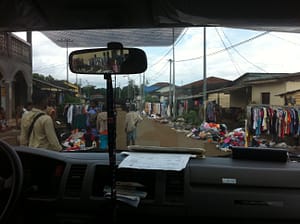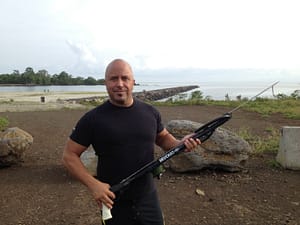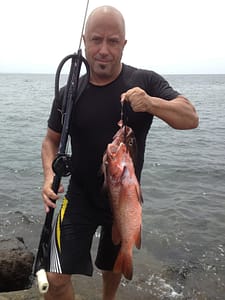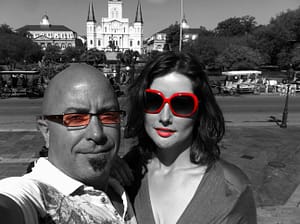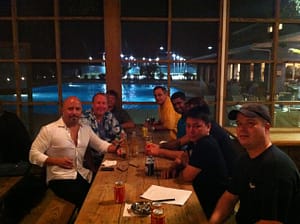Day in the Life – Africa Part 4
 This episode of the Day in the Life – Africa series starts where Part 3 ended. Having finished our excursion to the island’s northeast corner for spear fishing and a visit to the Sofitel Resort, we are on our way back to the compound. Short on supplies, we stop at the island’s largest grocery store.
This episode of the Day in the Life – Africa series starts where Part 3 ended. Having finished our excursion to the island’s northeast corner for spear fishing and a visit to the Sofitel Resort, we are on our way back to the compound. Short on supplies, we stop at the island’s largest grocery store.
Grocery shopping in the developing world comes with its own set of challenges. Stocked levels of various goods vary radically from week to week. Often basic necessities are missing in action. Breakfast cereals occupy half an aisle, however, there’s no milk in sight. Eggs are a rare commodity. When you do find them, it looks like they rolled around the henhouse floor prior to finding their way to the store. Bread is a hit or miss proposal. If they have sliced bread, it may be too small to accommodate a slice of cheese. On the bright side, it makes sticking to a reduced carb diet a bit easier.
There are plenty of toiletries, i.e.: soap and deodorant, however, they are in a locked glass cabinet. Judging by the odoriferous scents assaulting my olfactory system, many of my fellow customers found that an insurmountable obstacle.
Due to shelf life concerns, all meats are frozen either uncut, or cut and thrown into a plastic bag. In our freezer, I have a several selections of meat. Typically, they’re frozen together by type. Want a pork chop? Break out your hammer and chisel (or the nearest kitchen utensils suitable to the task) and break one off the frozen block of pork chops.
I’m not complaining. The meats are good. It’s just a small example of the differences we face every day. Today I scored an incredible cut. Unfamiliar with the procedures for procuring the uncut meats, I show up at the cashier with a huge, frozen, ten-pound beef back-strap (a slab of meat big enough to produce ten filets). Apparently, I was supposed to take it to the meat counter for weighing and pricing. A helper runs it back while I continue to checkout. Shortly, he returns, the cashier rings it up, and I pay.
Back at the compound, I notice it was only marked at 5000 CFA ($10.00). I’m pretty sure that was a mistake. Had I noticed it at the store I would have pointed out the mistake. However, I won’t lose any sleep over it. A three-quarters full grocery cart that would cost you $75 in the states cost 100,000 CFA ($200) here.
Groceries put away, it’s time for Hin’s cookout. As you may recall from Part 3, tonight Hin, our Thai helicopter mechanic is cooking dinner.
With team members from Thailand, South Africa, Canada, Sri Lanka, Trinidad, Sweden, Denmark, Holland, Germany, the United States, and parts of Louisiana, our base is a multi-cultural, international collection of aviation professionals. With the industry, our current assignment, and a working knowledge of the English language (excepting our Cajun friends … kidding) as common ground, we’ve formed close ties. An eclectic collection of individuals (some more eccentric then eclectic) from radically differing backgrounds, we work in harmony (for the most part).
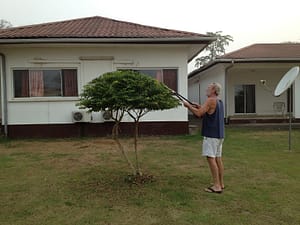
While Hin works on dinner under our covered, outdoor dining area,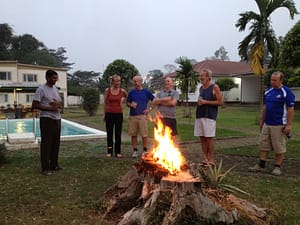
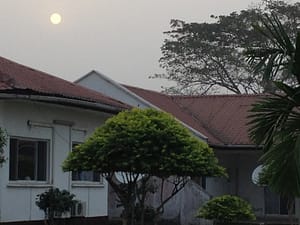
“Dinner is ready!” shouts Hin.
Taking our places, we dine on Hin’s excellent cuisine. 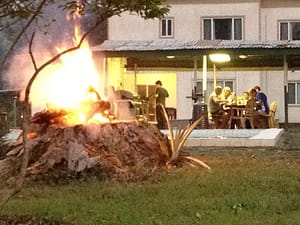
After dinner, we drink, laugh, and swap war stories. As dark envelopes the compound, the evening settles down. Chased inside by swarming tropical insects, a few of us decide to head to the Malabo’s Irish Pub (yep, there’s an Irish Pub in Equatorial Guinea). 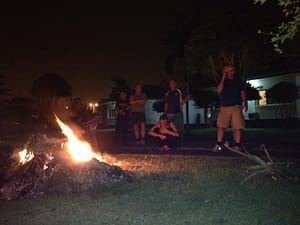
Who knows? We might not limit ourselves to the Irish Pub. But, that’s a tale I’ll save for Part 5.

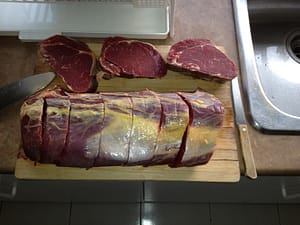
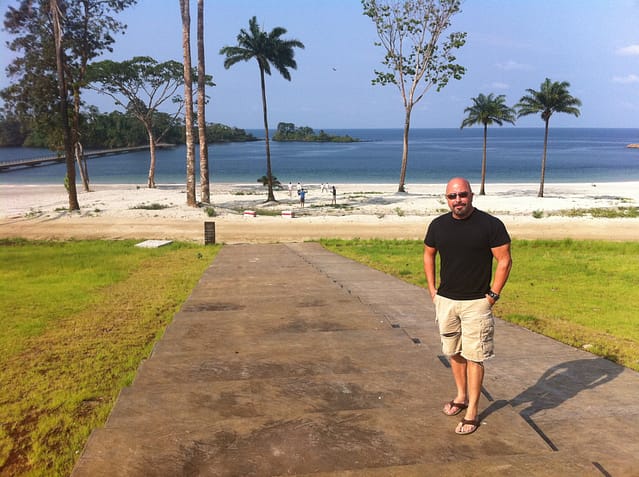
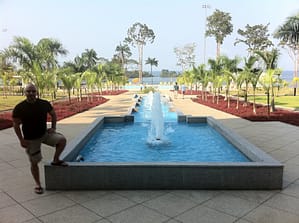
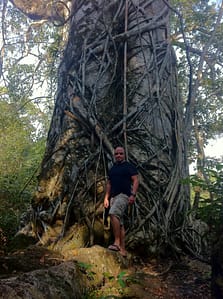
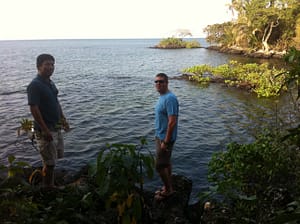
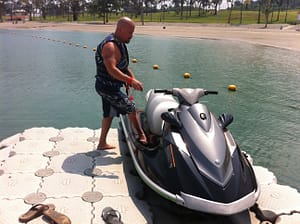
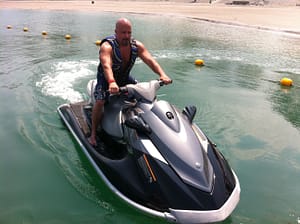
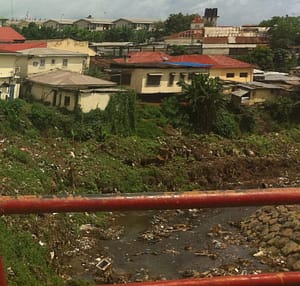 Deciding to call it a day, we pile into the Toyota Hilux and begin working our way through town. Here are a couple of pics taken along the way.
Deciding to call it a day, we pile into the Toyota Hilux and begin working our way through town. Here are a couple of pics taken along the way.